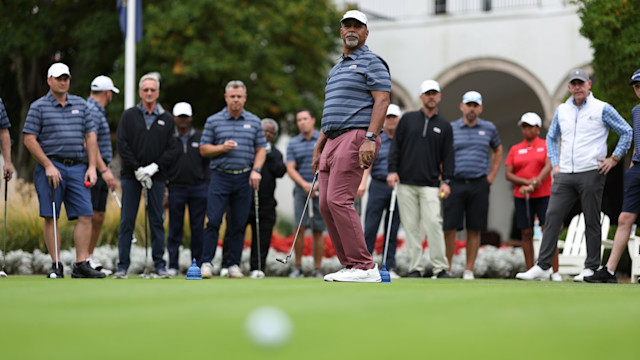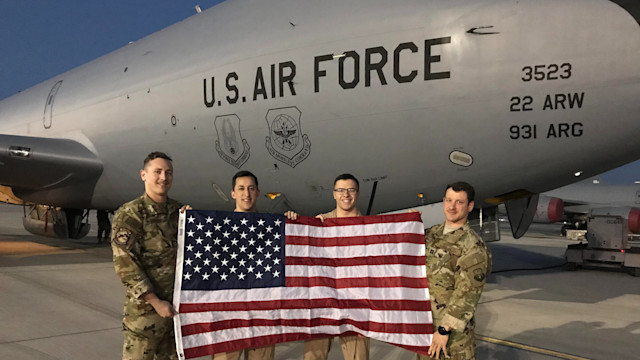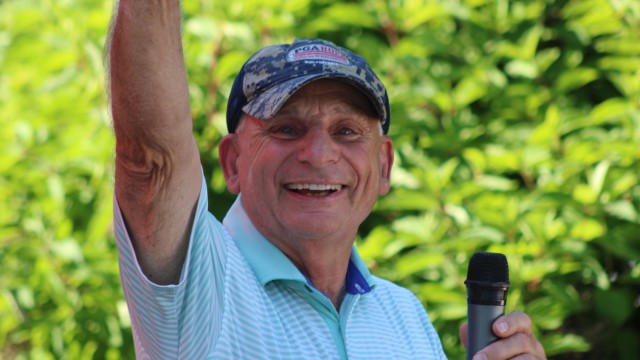Game Changers
'It's About Being Together': How Golf Has Helped Vietnam Veteran Rick Ferguson Find Happiness
By Jay Coffin
Published on
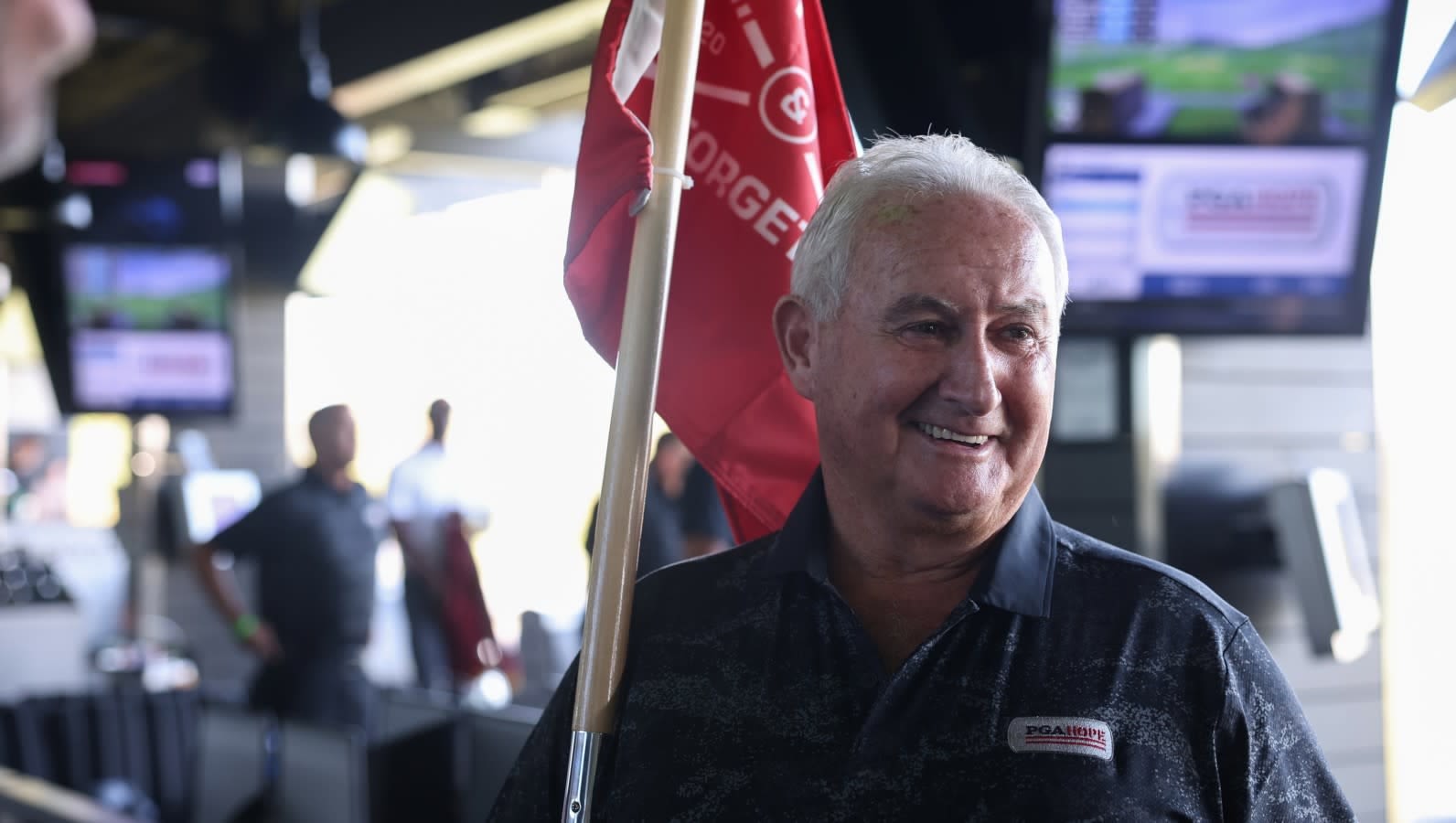
Veteran Rick Ferguson.
Rick Ferguson is in awe while walking around Congressional Country Club. He loves the beauty of the prestigious club. He’s wowed by its history. He’s spent time fine-tuning his game in the world-class teaching facility and, on Sunday, he was brought to tears when he entered the clubhouse and later saw his name affixed to a locker.
Mostly though, Ferguson, 75, can’t believe such wonderful things are happening to him because he’s a Vietnam Veteran, and after nearly losing his life 54 years ago in the controversial war, he’s rarely felt like the country has loved him as much as he’s loved it.
“I never thought I’d get this sort of recognition and kindness,” Ferguson says. “It’s really all I ever wanted.”
The retired Marine Corporal from the New England PGA Section is one of 20 Veterans (all pictured below) selected to participate in PGA HOPE National Golf & Wellness Week in Washington, D.C., hosted by Congressional. PGA HOPE (Helping Our Patriots Everywhere) is a flagship military program of PGA REACH, the charitable foundation of the PGA of America. PGA HOPE provides lessons to Veterans to enhance their physical, mental, social and emotional well-being.
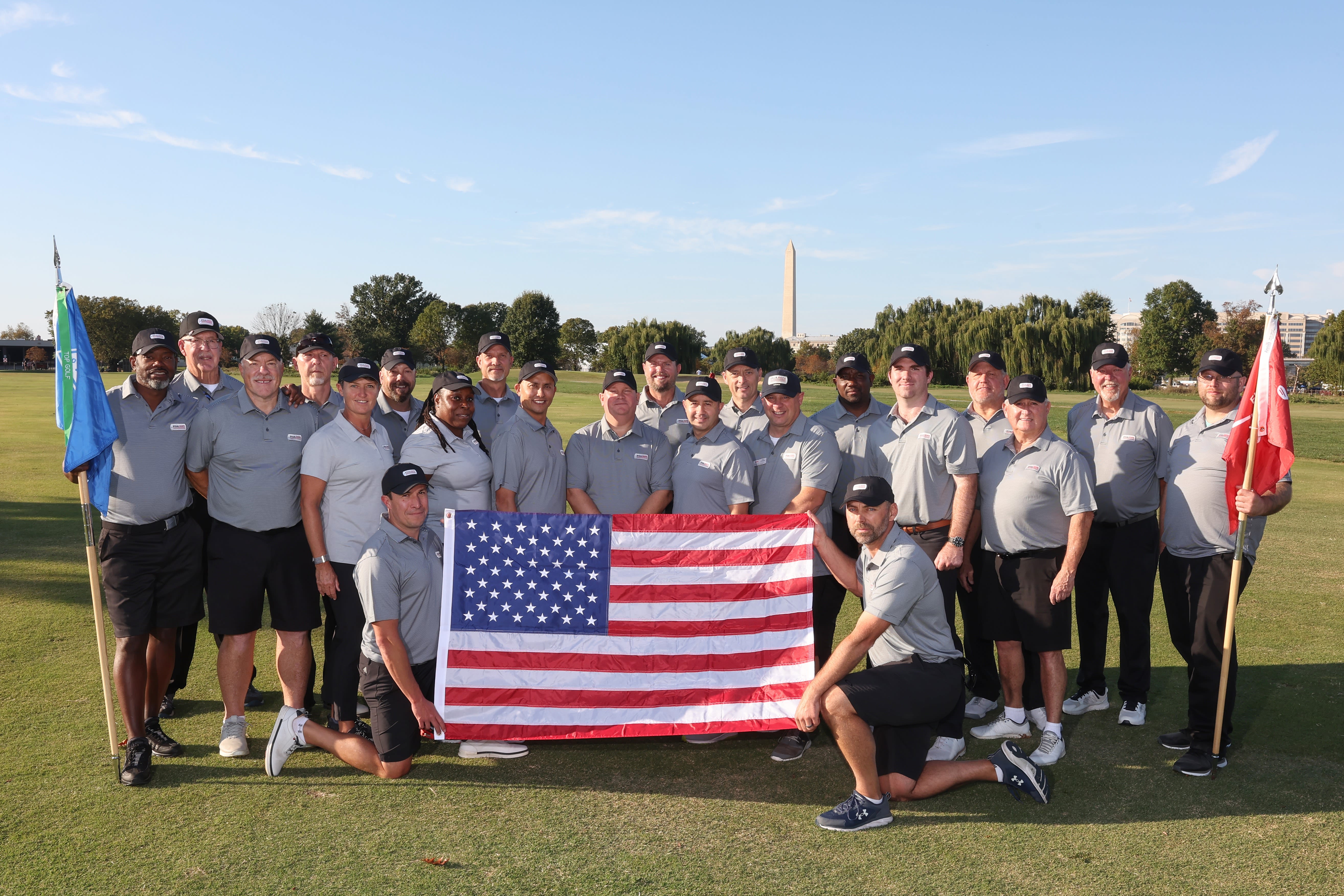
“He can’t even believe that this is possible, this week,” says Robert Leahey, 30, a retired Navy Corpsman from Atlanta who quickly befriended Ferguson this week, noting that their 45-year age difference is something they joke about but is inconsequential. “In his mind he didn’t know that many people could show how much they care about Veterans. He can’t fathom it – how much love and support has been shown to him because he never received it to begin with.”
From Massachusetts to Mutter's Ridge
Ferguson grew up in Worcester, Massachusetts, and first played the game when he was 13. He’d walk up the hill to the local course and swat a few balls with clubs from his father’s bag. The two of them bonded over their love of watching Arnold Palmer play golf on television.
Four years later, in 1966, Ferguson graduated from high school as the president of his class and captain of both the football and hockey teams. He enrolled in a technical college, and quickly realized it wasn’t for him, then transferred to a community college.
Times were extremely tumultuous then and the Vietnam War was in full force. Ferguson deferred the draft because he wanted to stay in school one more year. He wanted to enter it on his own terms. In June 1968, shortly after Robert F. Kennedy was assassinated, Ferguson made the decision to join the Marines.
“I wanted to go there to find out the truth about what was going on,” he recalls.
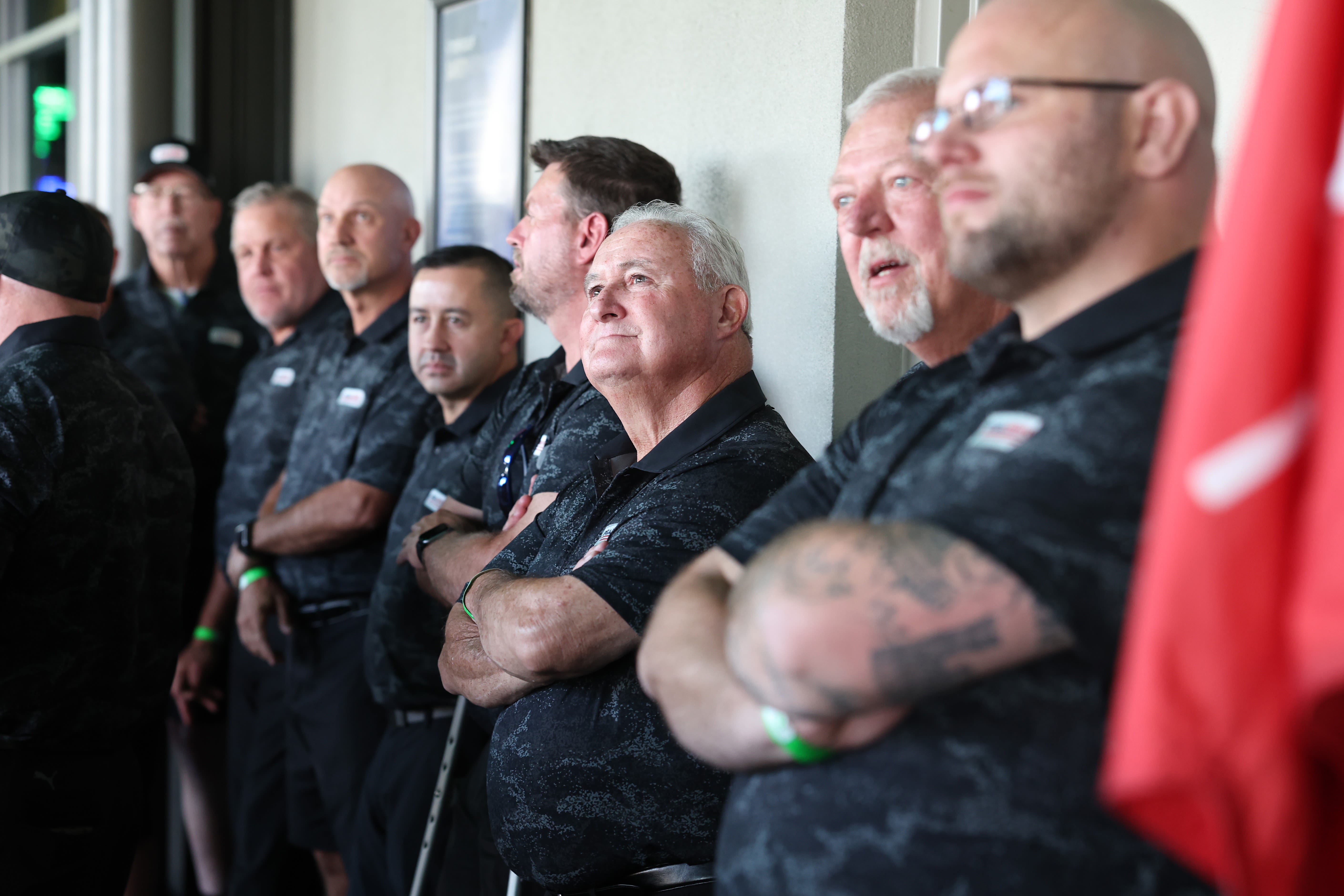
A month later, after training in Parris Island, Ferguson flew to Los Angeles. As he was leaving the country, word started to spread that Neil Armstrong had just set foot on the moon for the first time. That was July 20, 1969.
“We have someone on the moon and yet we’re still doing this early 20th century warfare,” he recalls thinking to himself.
Ferguson spent most of his time on the hills of Mutter’s Ridge, overlooking the southern edge of the Vietnamese Demilitarized Zone (DMZ). He was assigned to India Co., 3rd Battalion, 4th Marine Regiment, 3rd Marine Division and was a squad and platoon radio operator.
On Sept. 16, after serving for only two months, President Richard Nixon announced that he was going to pull the 3rd Marine Division out of combat and send them back to the United States.
The next day, however, Ferguson’s life changed forever.
'People didn't appreciate us'
Ferguson and his squad were sent out as a reactionary force to cut off the North Vietnamese regiment from crossing the border. They had set up a perimeter. But it wasn’t long before the squad leader was shot in the arm. Ferguson’s closest buddies, PFC John Chesebrough and PFC James Slattery, both lost their lives that day. Ferguson still regrets not pulling the dog tags from bodies that he saw laying near him from soldiers he did not know.
“It will haunt me forever,” he says.
After somehow ducking mortars for five straight hours, Ferguson was struck from behind and shrapnel moved through his body into his abdomen and punctured 19 holes in his sigmoid colon. He could not move, the pain was too excruciating and he laid in the same spot for three hours.
Finally, someone grabbed him and pulled him toward where a helicopter was landing. As Ferguson was getting closer, the chopper left, leaving him believing he would die. But someone ordered it to return to rescue Ferguson and a few others. Thankfully, it did.
During the chopper ride to the Army medical center in Dong Ha to perform triage, a gunner approached Ferguson, put his jacket over him to provide warmth, rubbed his brow and whispered, “you’re gonna make it.”
“I relied on those four words for a long time,” Ferguson remembers. “I wish I knew his name, because he was a factor in my survival.”
Ferguson had three major surgeries before finally arriving back in the United States on Nov. 10 – the Marine Corps birthday – at Chelsea Naval Hospital just north of Boston. By then, he only weighed 103 pounds.
Once he was well enough to fall back into civilian life, Ferguson hid the fact that he served in Vietnam. He had seen his fellow soldiers be accused of horrendous crimes that never happened and he was not going to be a part of that. Still, some friends who knew Ferguson served were not welcoming.
“It was a group of the most honorable people I’ve ever met,” he says. “But back here in our world, people didn’t appreciate us as human beings.”
Healing through golf
Ferguson now lives in Shrewsbury, Massachusetts with Cheryl, his wife of 54 years. He has two daughters and four grandchildren. He received his bachelor’s degree five years after returning from Vietnam and now has two separate master’s degrees, one in urban education in 1981 and one in leadership and administration in 2002, when his daughter Stephanie also received her first master’s degree. He retired in 2016 after teaching special education for 42 years.
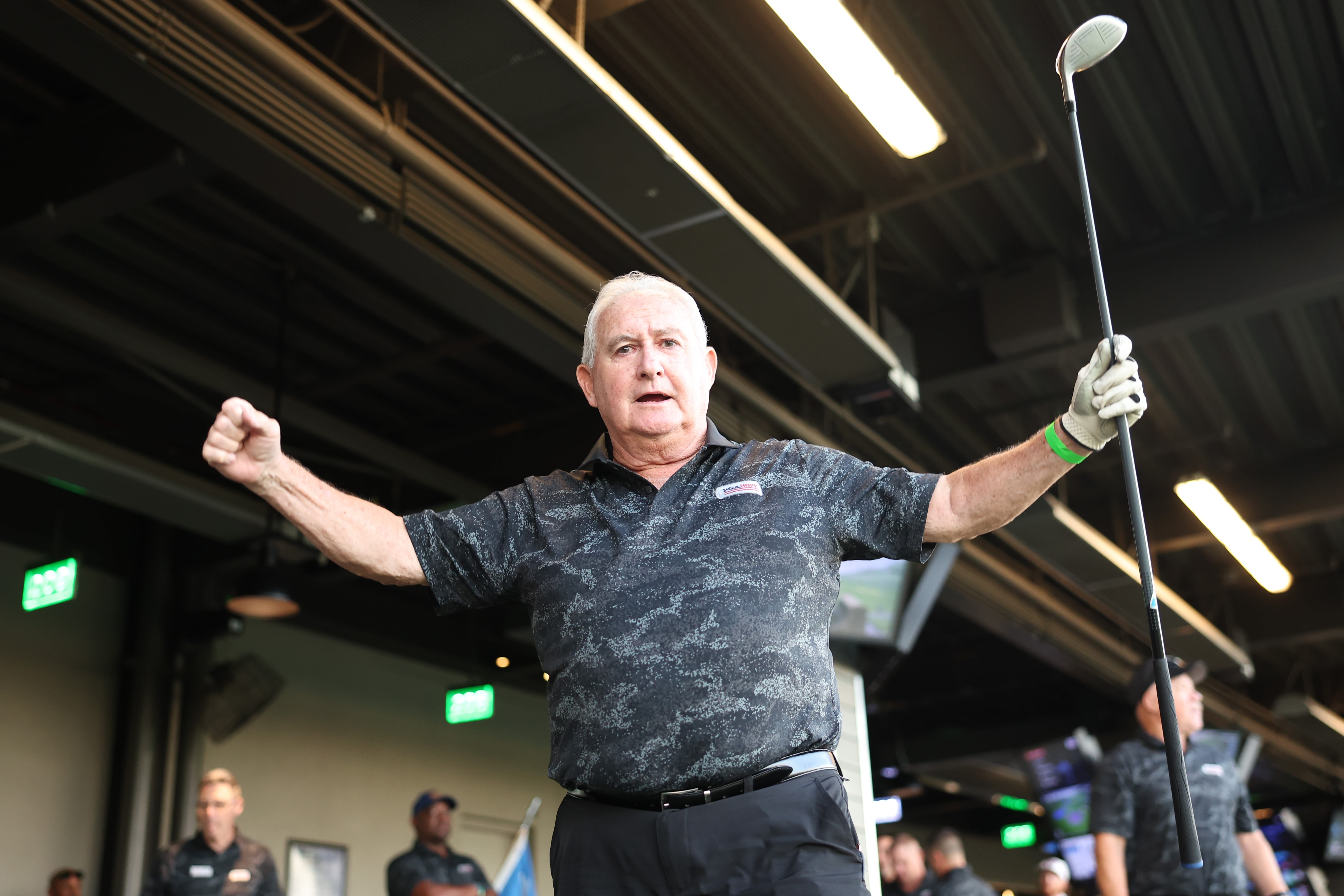
On the outside, everything appears well with Ferguson. He’s happy and thankful. But he still has shrapnel inside his body, often has massive stomach cramps and is undergoing a fourth surgery next month to help alleviate symptoms that come from diverticulitis, which was caused by his injury five decades ago.
He’s also still admittedly obsessed with reading about the Vietnam War and attempting to find answers to questions that are unexplainable.
“I’m trying to figure out why our government, why our military would commit Americans like us to a fight that they knew we weren’t prepared to win,” Ferguson wonders, while saying that his wife and counselors have both advised him to stop searching.
Ferguson is also an eloquent writer and shared a 314-word poem written seven years ago about the day he was wounded. It’s called “it’s personal” and explains in heart-breaking detail what it was like to watch his friend, PFC Chesebrough, die before he was able to fire his weapon first.
Generations of warrior-time elapsed
He wanted the perfect shot
His M-79 grenade launcher rose
With his muddied-Marine-body
_________________
Now on his right knee
He took his bead
Shoot the bloop, Cheese
Shoot the bloop, Cheese
_________________
He took a round in his chest
Blown on his back to the muck
A sucking chest wound gurgled vomit
The never-fired bloop at his side
There he died
Aside from time spent with family, it’s golf that makes Ferguson the happiest. He played sparingly during his post-military career but it was never as much of a priority as it is now.
“I’m so passionate about it,” he says. “It’s not about me. It’s about being together with other Veterans who all love the game.”
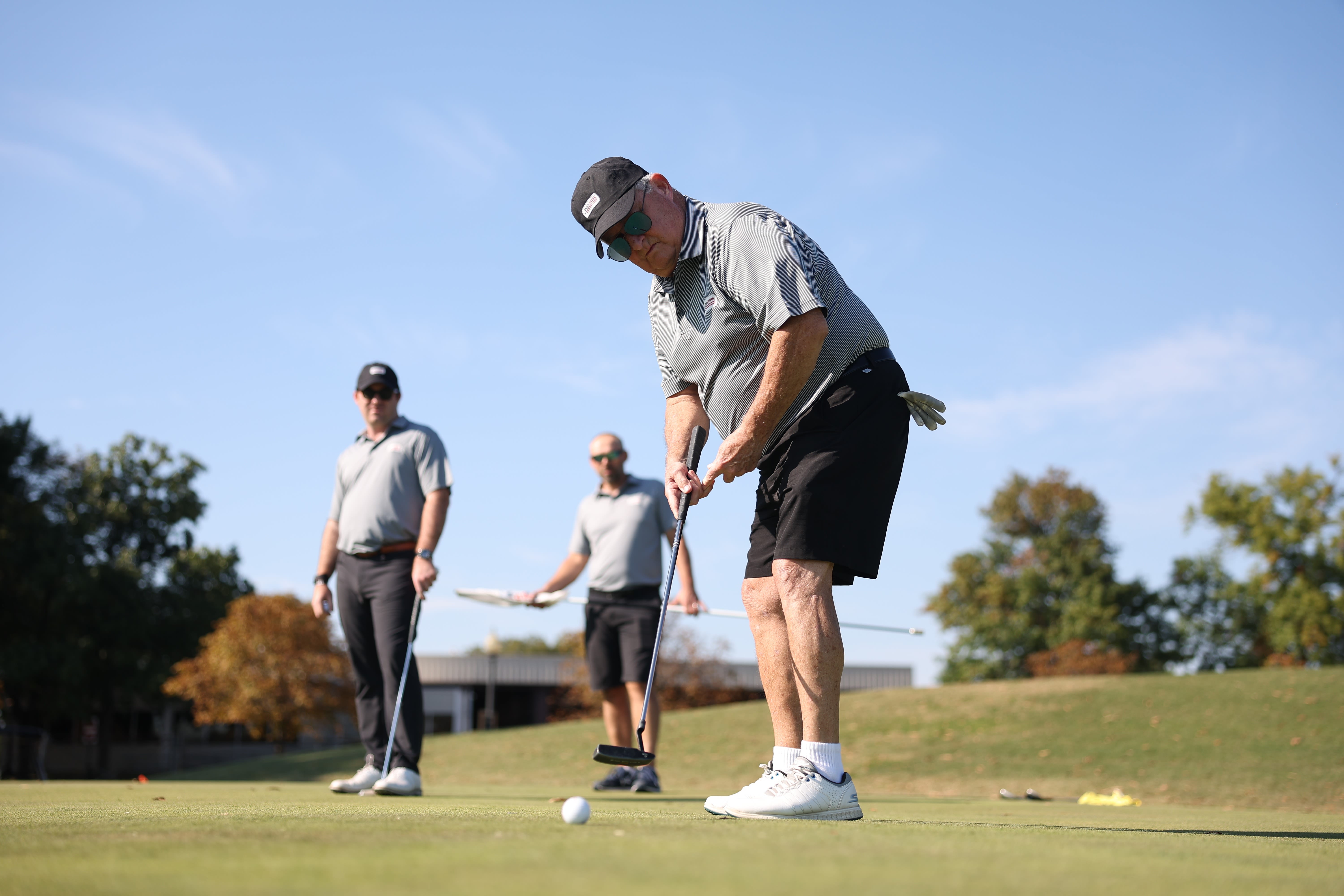
Since retirement seven years ago, he’s playing much more and discovered the PGA HOPE program three years ago at Green Hill Golf Course in Worcester. It’s helped him focus and practice breathing exercises, which helps him deal better with PTSD. In his time with PGA HOPE, Ferguson has brought numerous other Veterans to the program, which resulted in him being named an Ambassador for the week at one of the most prestigious clubs in America.
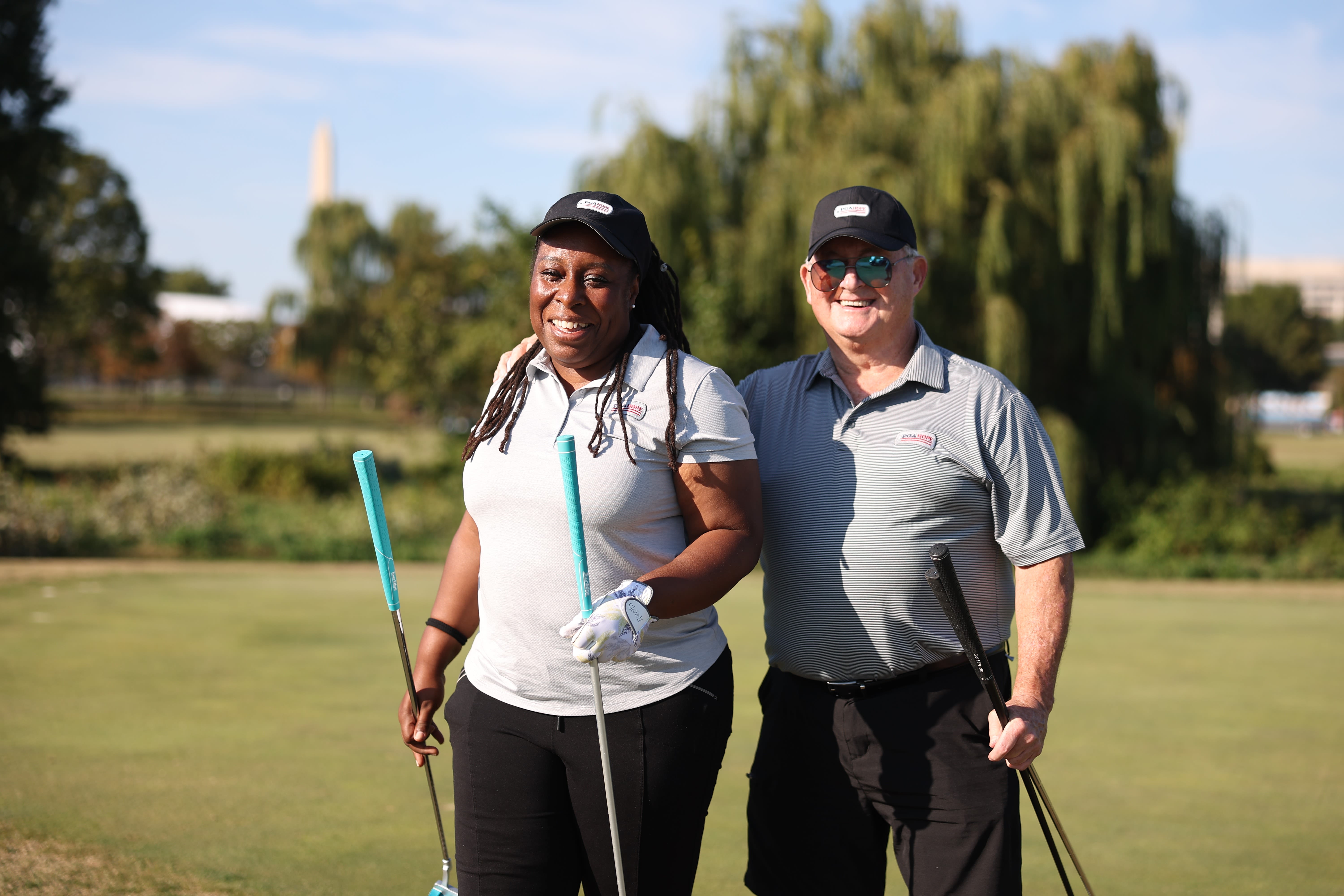
“He’s one of the nicest, fun-loving guys of all time,” Leahey says of Ferguson. “Looking at him, he’s the person you want to surround yourself with. If anyone wanted to purchase a New England grandpa, that’s the guy. The dude is incredible.”
